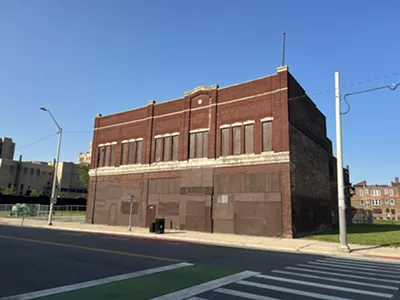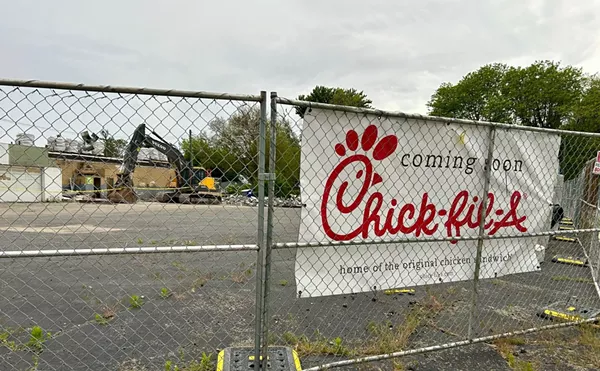This 16-year-old Detroiter wins all cases as juvenile defense attorney
Oakland County is piloting a Teen Court program to prevent youth crime

Audio By Carbonatix
[
{
"name": "GPT - Leaderboard - Inline - Content",
"component": "35519556",
"insertPoint": "5th",
"startingPoint": "3",
"requiredCountToDisplay": "3",
"maxInsertions": 100,
"adList": [
{
"adPreset": "LeaderboardInline"
}
]
}
]

For 16-year-old Detroiter Cayden Brown, social justice has always been at the forefront of his priorities. This is made apparent through the teenager’s work, which includes launching an online media platform to host open discussions on social issues, starting a nonprofit to serve underrepresented communities, and serving as a teen juvenile defense attorney.
Brown feels that law is the biggest way to create change, so when he heard about Oakland County Teen Court, he was eager to get involved. The program is aimed at keeping juveniles out of the court system, designed around the philosophy that a jury of one’s peers is more influential in dealing with behavioral problems than any other method. Teen Court uses teen attorneys and jurors who have learned about the court system to analyze cases.
“Adults don’t understand things the same way that we understand things, it’s a different time,” Brown says. “Being put in front of people who are a true jury of your peers is beneficial to make sure that you get the justice you deserve and are entitled.”
Teen Court defendants are first-time offenders that have already been found guilty. Through the program, the juvenile’s record can be wiped clean.
“I actually analyze the cases, fight the cases, I do all of it by myself,” Brown says. “There are mentors there, there’s a real judge, too. It’s just like a real court, but they allow the students to play all of those roles.”
Oakland County’s 52-1 District Court is one of the three participating courts piloting the program. Apart from granting young people like Brown a chance to get involved in their community, statistics have shown that places using Teen Court as a part of their youth crime prevention program consistently report that 90% or more of the defendants who complete the sentence are never re-arrested.
“All of the cases I was assigned, I was able to win each and every one, and that just shows how dedicated I am to the cause,” Brown says. “I’m inspiring kids who are my age to be able to do things that we’re often told we have to wait to do. I’m gonna make a change right now.”
Another way Brown has begun creating change is through The Trespass Project, an online hub designed to encourage open discussions on topics central to understanding diversity. The platform aims to serve as a safe space for dialogue, education, and awareness, fostering understanding and empathy among individuals from diverse backgrounds.
The name “Trespass” was chosen to underscore the significance of those of diverse backgrounds crossing into spaces where they may not initially be welcome, Brown says.
Through the project, Brown has recently established a registered nonprofit organization with the primary mission to ensure that all communities have equal opportunities to thrive in all areas of life including education, community involvement, economic empowerment, and access to essential resources.
After high school, Brown says he wants to continue his social justice strides and plans to go to law school to become a civil rights attorney.
Regardless of what he ends up doing, he says, “making change is the number one goal.”
Subscribe to Metro Times newsletters.
Follow us: Google News | NewsBreak | Reddit | Instagram | Facebook | Twitter






